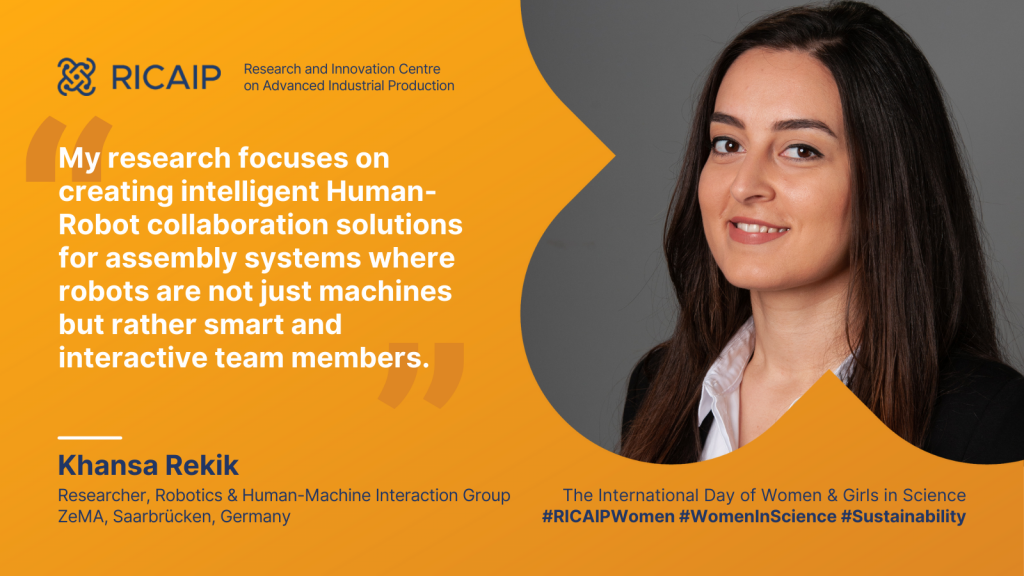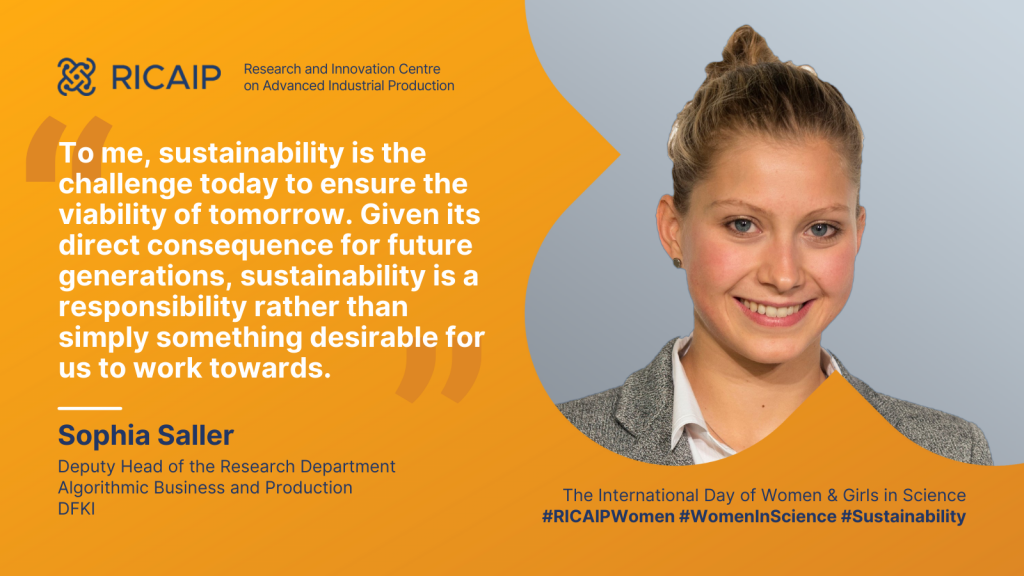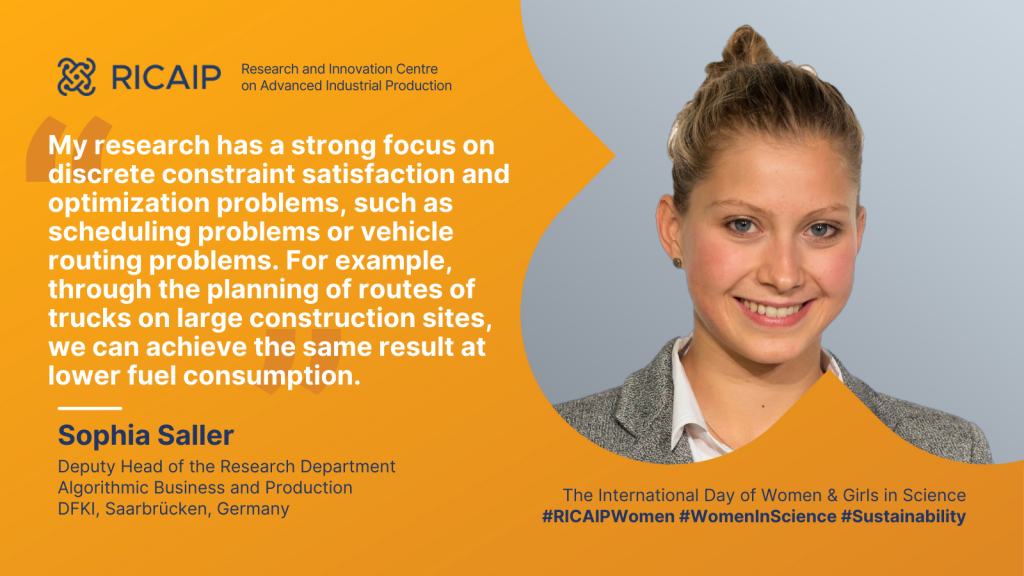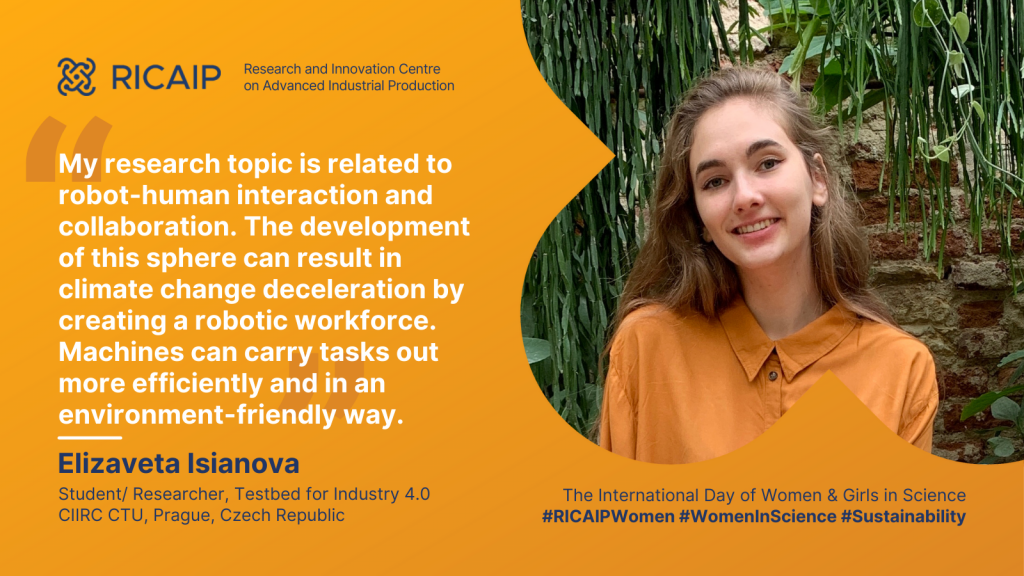At RICAIP, we would like to celebrate the “International Day of Women and Girls in Science“, which was proclaimed by the United Nations General Assembly on 11 February. There are a few interesting women in our teams who deserve our attention. Inspired by the UN International Women’s Day, we asked them questions related to the current topic of “Gender Equality for a Sustainable Future”.
Let us introduce three of them, their research focus, their perspective on #SUSTAINABILITY and where they see the impact of their research on it. Today, meet Khansa from ZeMA, Sophia from DFKI, and Elizaveta from CIIRC CTU.
The aim is to introduce what female scientists are doing for a better future for all of us, by working in various areas, they can be inspiration for others to address the topic of sustainability.
Khansa Rekik
Researcher, Robotics & Human-Machine Interaction Group
ZeMA, Saarbrücken, Germany
What does sustainability mean to you?
To me, in a general sense, sustainability is the ability to continue over a long period of time. The first factors that I can think of are the economy, society and the environment altogether, in other words, how to assure efficiency in resources, how to reduce waste and how to maintain or improve the well being of humans not only today but also in the future. On the practical side, a sustainable system is capable of ensuring through direct action or careful design its ability to continue to accomplish its goals in the future without additional intervention. That covers multiple steps from the type of raw material used and the modularity of the system to the possibility of recycling.
What aspects of your research might positively impact sustainability?
My research focuses on creating intelligent Human-Robot collaboration solutions for assembly systems where robots are not just machines but rather smart and interactive team members. Moreover, boosting tests in simulated environments before engaging with the actual hardware increases energy efficiency and minimizes waste. Finally, by means of such approaches, the ergonomy of production tasks is enhanced and thus better working conditions are guaranteed.


Sophia Saller
Deputy Head of the Research Department Algorithmic Business and Production
DFKI, Saarbrücken, Germany
At RICAIP, Sophia works as researcher in process optimization and scheduling using mathematical and constraint optimization techniques.
What does sustainability mean to you?
To me, sustainability is the challenge today to ensure the viability of tomorrow. Given its direct consequence for future generations, sustainability is a responsibility rather than simply something desirable for us to work towards.
What aspects of your research might positively impact sustainability?
My research currently has a strong focus on discrete constraint satisfaction and optimization problems, such as scheduling problems or vehicle routing problems. As such, they do not directly target sustainability issues, but help in reducing waste of resources. For example, through the planning of routes of trucks on large construction sites to reduce the distance travelled, we can achieve the same result at lower fuel consumption.


Elizaveta Isianova
Student/ Researcher, Testbed for Industry 4.0
CIIRC CTU, Prague, Czech Republic
What does sustainability mean to you?
To me, sustainability is the necessity to rectify mistakes of the past. By introducing new technologies, we should aim to restore the balance of nature and enhance the quality of life across the globe.
What aspects of your research might positively impact sustainability?
My research topic is related to robot-human interaction and collaboration. The development of this sphere can result in climate change deceleration by creating a robotic workforce. Machines can take over tasks from their human colleagues and carry them out more efficiently and in an environment-friendly way.


